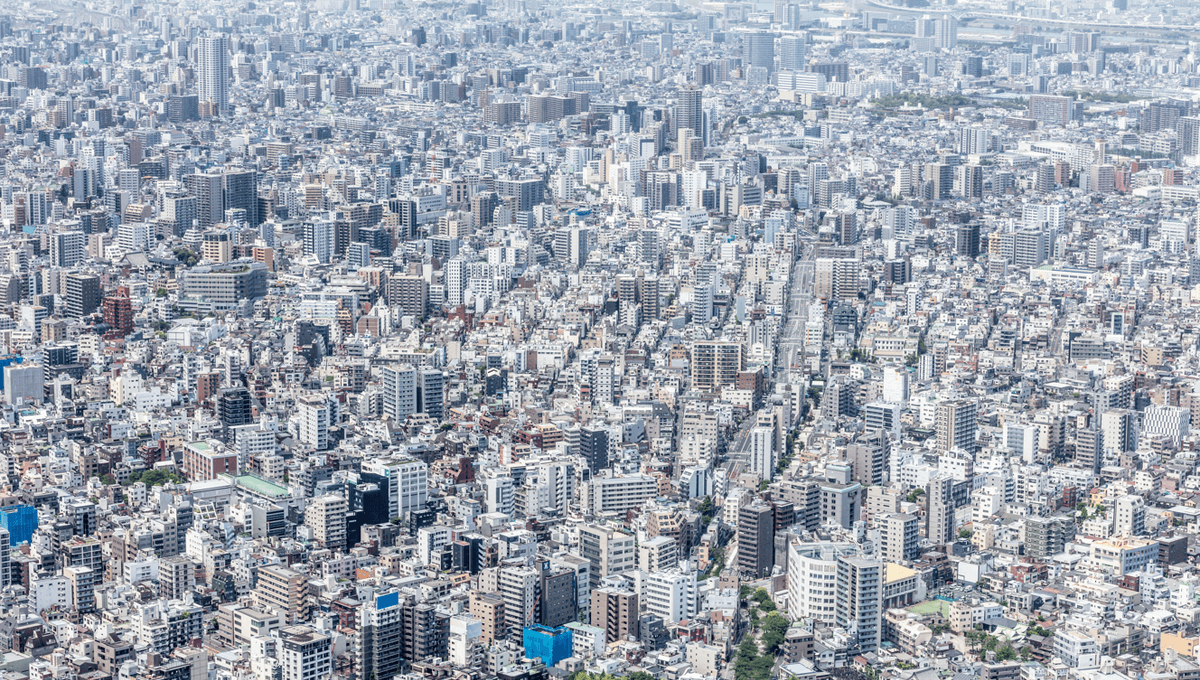
Tokyo is often called the largest city in the world because of its gigantic population, with over 37 million inhabitants within its grasp – that’s almost one-third of Japan’s entire population and around the entire population of Canada. While the Japanese capital is undoubtedly an urban giant, these statistics may be a little bit misleading.
That’s because the figure commonly cited refers not to Tokyo as a single city area, but to the greater Tokyo metropolitan area, a sprawling conurbation that includes nearby prefectures like Kanagawa, Saitama, and Chiba. The Greater Tokyo Area also encompasses Yokohama, the second-largest city in Japan by population.
Within this wider region lies a dense network of interconnected cities, towns, suburbs, and commuting zones that function together as one continuous urban ecosystem. All in all, this area covers an area of approximately 13,500 square kilometers (5,200 square miles), which is larger than a small country like Jamaica, Lebanon, or Qatar.
However, in reality, Tokyo proper – the 23 special wards that make up the core of the city – has a population closer to 9 million. That’s fractionally smaller than London (then again, it depends on how you measure the size of this city too).
How we define a city’s limits is somewhat arbitrary, but these distinctions matter, especially when comparing Tokyo to other megacities around the world. Cities like Delhi, Shanghai, and São Paulo may appear smaller by some metrics, but differences in how city boundaries are defined can skew the comparison.
The Chinese city of Chongqing recently gained attention for being “the biggest city in the world you’ve never heard of.” As big as it is, it depends on how you’re defining this size. The city boasts more than 32 million people living within its boundaries, although more reasonable estimates suggest around 6 or 7 million people make up the actual urban population of Chongqing. Just like Tokyo, the greater metropolitan area of the city includes numerous other commuting settlements – and a hell of a lot of people.
Nevertheless, Tokyo’s situation is particularly unique. Japan’s high urban population density, especially in Tokyo, is largely a result of the country’s distinctive geography. Situated on a narrow archipelago and dominated by mountainous terrain, Japan has limited land that’s perfectly suited for growing metropolises. As a result, the population is heavily concentrated in a few low-lying coastal plains and river valleys, including major metropolitan areas like Osaka, Nagoya, and, of course, Tokyo.
Tokyo is unlikely to maintain its status as the world’s largest city for long. Japan is grappling with a well-documented demographic crisis, driven by a rapidly aging population and an oddly low birth rate. Some projections suggest that the Japanese population could fall from 128 million in 2017 to just 60 million by 2100.
This decline is already starting to shake up the capital, and the population is slowly shrinking. The trend is also being magnified by the policies of Japan’s government, which is desperately trying to manage the country’s demographic conundrums.
One such move involves offering economic incentives for Tokyoites to relocate to rural areas with the aim of shifting the population from the crowded city to their dwindling small towns and villages. Families in the Tokyo metropolitan area are being offered 1 million yen (around $6,900) per child if they pack up their lives in the big city and move to less-populated pockets of the country.
Source Link: Tokyo Is The Biggest City In The World... Or Is It?